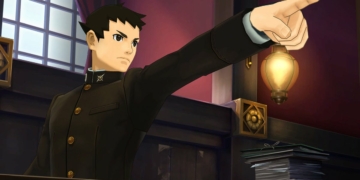For Holocaust survivors who escaped with their lives and little else, watching the trials of accused Nazis more than 75 years after the unspeakable horrors and loss doesn’t offer much solace.
Last week, Irmgard Furchner, a 96-year-old former secretary at the Stutthof concentration camp in Poland from 1943 to 1945 fled her nursing home in a daring predawn escape on the day she was to stand trial. The nonagenarian, accused of being an accessory to more than 11,000 murders, called a cab and booked it to a subway station. She was eventually captured outside Hamburg, Germany. Her new trial date is set for Oct. 19.
For Stutthof survivor Asia Shimelman, the episode was “heartbreaking.”
“They wanted me to come as a witness to Germany,” Shimelman, now 93, told The Post from her home in Wayne, NJ.

Shimelman — who was a witness in the 2019 trial of Stutthof SS guard Bruno Dey, whose guilty verdict and two-year suspended sentence was handed down in 2020 — has been waiting decades for a small measure of justice. She endured a year of hell at Stutthof from 1944 to 1945, surviving torture that included a mock execution where guards held a gun to her head.
“They could put her in jail, so she can’t escape anymore,” added Shimelman.
Furchner was indicted as part of a concerted effort by German prosecutors to pursue lower-level people for the roles they played in the Holocaust. While Furchner’s lawyer claimed that she could have been “screened off” from the horrors of Stutthof, Shimelman doesn’t buy it.
“It couldn’t be — there’s a camp only to murder people,” the great-grandmother of five said, noting that Furchner transcribed execution orders dictated to her by camp commandant Paul-Werner Hoppe, who was convicted of accessory to murder in 1955.
“There were gas chambers, slave labor, beatings. She knew everything, and she helped him. It’s hard to hear the denials. We know it’s not true.”

A defiant Furchner wrote to the court weeks ago, explaining that she planned to boycott the proceedings because they would be “degrading” for her.
“This was not a big surprise that she escaped,” said Shimelman of the woman who tried to outrun her past.
“It’s beneath her to be in the trial, but not beneath her to participate in all the things she’s done?” said Aron Krell, a 93-year-old Holocaust survivor from the Upper East Side whose mother was killed in Stutthof.
“Every person who was there participated in the horrible crimes that they committed,” Krell said, pointing out that Furchner was found within hours. “If they could find her now, they could have found her decades ago.”
His beloved mother, Esther, was killed at Stutthof after being sent there from Auschwitz-Birkenau, also in Poland. Krell, who survived Poland’s Lodz Ghetto for four years followed by multiple camps — including Auschwitz-Birkenau and Mauthausen in Austria — considers today’s public trials of former Nazis a “sham.”
“What good is it to be on trial now? What is the punishment that they’re going to get? What’s the suffering they will get? Nothing,” said Krell, who wrote the 2008 memoir “Overcoming Evil.”

“We were all walking skeletons. I was hardly alive. I was more dead than alive,” he said of his time in the camps. “The Jewish people had to dig their own graves and then they were massacred.”
One of his former camps, Sachsenhausen, on the outskirts of Berlin, had a former guard who’s set to stand trial this month. The 100-year-old unnamed SS guard, who served in the camp for three years, is charged with 3,518 counts of accessory to murder.
“Why would it take so long? They could have gotten them years ago,” said Krell, who’s the only surviving member of his large extended family.
Greg Schneider, executive vice president of the Claims Conference, which helps Holocaust victims, explained why a handful of high-profile trials are only happening now.
“Prosecutors in Germany understand this is really the last chapter. If they don’t do it now, they’ll never be able to do it,” said Schneider, noting that a majority of Nazi war criminals managed to escape prosecution while either staying in Germany or fleeing to countries like Argentina.

“There can never be justice for Holocaust survivors,” Schneider said of the crimes and atrocities that led to the murder of six million Jews. “But establishing the record, at this stage, is incredibly important.”
(Thanks to negotiations from the Claims Conference, it was just announced that 6,500 Holocaust survivors from the siege of Leningrad will receive pensions for the first time. “Giving some dignity to Holocaust survivors in their final years is essential,” said Schneider.)
While Furchner was a secretary, not a mastermind, Schneider reiterated how it was ordinary people who enabled the Holocaust to happen.
“If people like her had said, ‘No, I won’t be a part of this’ — if enough of them said that — it wouldn’t have been possible. But they didn’t.”
Shimelman, for one, would like to see Furchner’s role in the Holocaust acknowledged.
“She has to feel like a murderer, not live her whole life like a free person,” she said.















